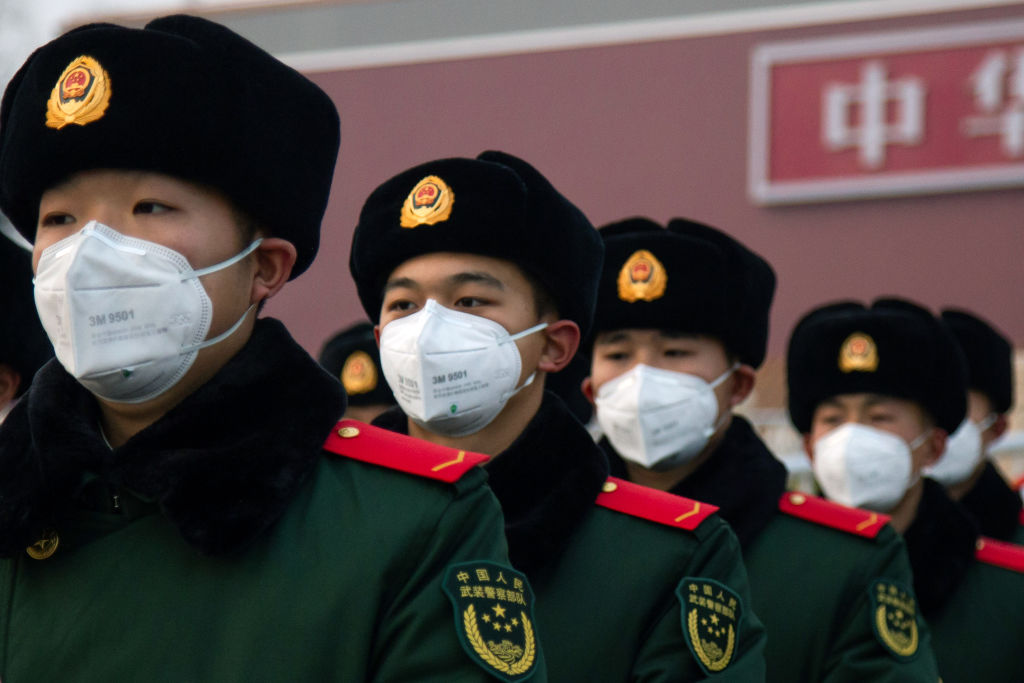 Print This Post
Print This Post- The Strategist - https://www.aspistrategist.org.au -
Covid rocks the status quo
Posted By Graeme Dobell on February 15, 2021 @ 06:00

‘Ch-ch-ch-ch-changes (Turn and face the strange)
Ch-ch-changes
Don’t want to be a richer man
Ch-ch-ch-ch-changes (Turn and face the strange)
Ch-ch-changes
There’s gonna have to be a different man
Time may change me
But I can’t trace time’
— David Bowie, ‘Changes’, 1971
[T]he East’s success with coronavirus is not a lucky accident: it is the result of a change that has been several decades in the making. Asia had the technology to deal with the disease—especially in its ‘intelligent cities’ that use smart infrastructure to manage urban life better. It had the trust of its citizens.
Joe is simply impossible not to like. He’s down to earth, funny, profane, and humorously self-aware of his motormouth. Not too many meetings had occurred in the Situation Room before the president started impatiently cutting Biden off. Joe is a man of integrity, incapable of hiding what he really thinks, and one of those rare people you know you could turn to for help in a personal crisis. Still, I think he has been wrong on nearly every major foreign policy and national security issue over the past four decades.
Confidence in the rules-based global order is being undermined by disruptions from a widening range of sources. Major power competition has intensified and the prospect of high-intensity conflict in the Indo-Pacific, while still unlikely, is less remote than in the past.
The pandemic will have enduring effects on geopolitics. International suspicion is rising and trust is in limited supply. Strategic adventurism by some states further unsettles the status quo. The world will enter a period of even greater strategic flux. Diplomatic and security crises will erupt regularly with only intermittent and unsatisfactory efforts to resolve them.
Article printed from The Strategist: https://www.aspistrategist.org.au
URL to article: https://www.aspistrategist.org.au/covid-rocks-the-status-quo/
[1] David Bowie, ‘Changes’: https://www.songfacts.com/lyrics/david-bowie/changes
[2] Alan Kohler: https://thenewdaily.com.au/finance/2021/01/18/alan-kohler-finance-predictions-2021/
[3] modern monetary theory: https://en.wikipedia.org/wiki/Modern_Monetary_Theory
[4] end of the Vasco da Gama era: https://www.lowyinstitute.org/publications/end-vasco-da-gama-era
[5] controlled the pandemic: https://www.aspistrategist.org.au/whose-post-pandemic-century/
[6] The wake-up call: https://shortbooks.co.uk/book/the-wake-up-call
[7] overtake: https://www.lowyinstitute.org/the-interpreter/covid-s-long-reach-upsets-economic-pecking-order
[8] Xi and the party: https://www.aspistrategist.org.au/will-the-coronavirus-topple-chinas-one-party-regime/
[9] damage control: https://www.nytimes.com/2020/02/15/world/asia/xi-china-coronavirus.html
[10] Robert Gates: https://www.penguinrandomhouse.com/books/217977/duty-by-robert-m-gates/
[11] slowly slipping away from the US: https://time.com/5934517/the-key-foreign-policy-challenges-facing-president-biden/
[12] 2016: https://www.defence.gov.au/whitepaper/
[13] 2017: https://www.dfat.gov.au/publications/minisite/2017-foreign-policy-white-paper/fpwhitepaper/index.html
[14] loud and insistent—even a bit passionate: https://aspistrategist.siteinprod.com.au/seven-defence-white-papers-by-the-numbers-3-themes-and-memes/
[15] 2020 defence strategic update: https://www1.defence.gov.au/strategy-policy/strategic-update-2020
[16] Bilahari Kausikan: https://asialink.unimelb.edu.au/insights/what-and-whose-rules-based-order-rbo
[17] International Institute for Strategic Studies: https://www.iiss.org/blogs/Analysis/2020/11/Strategic%20Prospects